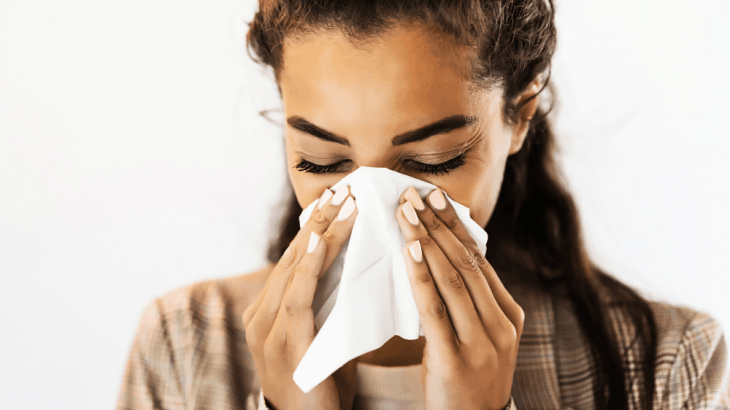
Allergies: understand and act
Allergies: understand and act
About 30% of adults and 45% of children suffer from allergies to varying degrees with reactions to immunoglobin E (IgE). The allergens most often blamed are pollen, animals, dust mites, dust, pollution, etc.
IgE is the cause of the inflammatory reaction and allergy symptoms.
Allergy is a disruption of the immune system. This corresponds to a loss of tolerance towards a specific substance, the allergen. Lympatox will act on this mechanism via the lymphatic system by ridding the lymph of trapped exogenous and endogenous toxins.
When IgE-associated cells are activated, they produce cellular mediators such as histamine, leukotrienes, and prostaglandins. These molecules are responsible for the redness, secretions and edema observed during the allergic reaction. They are particularly found on the mucous membranes. The role of IgE is to recognize pathogens and triggers a set of biochemical reactions.
General symptoms
Symptoms related to allergies usually include sneezing and runny nose, coughing, shortness of breath, wheezing, redness, swelling of the eyes, itching, inflammation, irritation and watery eyes.
Sources of allergies
Depending on our sensitivity, we may develop allergy symptoms from various sources. People with allergies are rarely allergic to just one thing.
The most common allergens are house dust and mold, dust mites and animals, different types of pollen, atmospheric and/or environmental pollution, active or passive smoking, strong odors (perfume, household products, paint, etc.). ).
An allergen often paves the way for other types of allergens, thus promoting the triggering of allergies linked to usually more passive sources.
Preservatives
Some preservatives used in the food industry can obstruct the airways and cause allergies. The best known are sulphites, potassium metabisulphite and sulfur dioxide. They are found in particular in dried fruits, cold meats, vinegar and non-organic wine.
*Food additives based on sulphites (often associated with the induction of allergic attacks).
Prevent and relieve seasonal allergy symptoms
Allergex , a homeopathic complex, acts as an antihistamine on both the skin and the respiratory tract. Allergex can be used in the event of an asthma attack, during hay fever season or for allergic manifestations of any type.
It reduces runny nose, inflammation of the eyes or watery eyes, headaches, and congestion in the respiratory tract caused by the allergen. In addition, it reduces edema with an action on the ENT and pulmonary spheres.
Can be taken as soon as symptoms appear or as prevention before the start of allergy season.
Allergex will allow you to smell the fragrances of spring and enjoy outdoor activities without discomfort!
Line Lafrance, Naturopath ND.A. for Alterra
